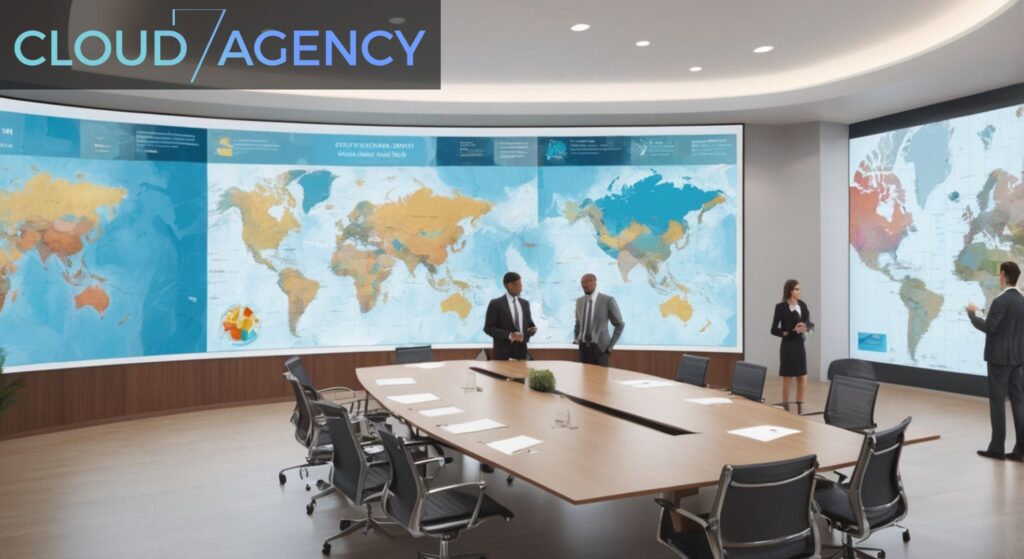In today’s interconnected digital landscape, building domain authority that transcends geographical boundaries has become essential for businesses seeking global reach and sustainable online success. International authority building represents a sophisticated approach to establishing credibility, trust, and search engine recognition across multiple markets, languages, and cultural contexts. This strategic process goes far beyond traditional link building, encompassing a comprehensive methodology that considers regional search behaviors, cultural nuances, and diverse digital ecosystems.
The evolution of search engines has fundamentally transformed how authority is measured and distributed across international markets. While domain authority was once primarily determined by the quantity and quality of backlinks from any source, modern algorithms now place significant emphasis on geographical relevance, cultural context, and regional trust signals. This shift has created both opportunities and challenges for businesses attempting to establish themselves as authoritative sources across multiple international markets.
International authority building requires a nuanced understanding of how different search engines operate in various regions, from Google’s dominance in most Western markets to Baidu’s influence in China, Yandex’s presence in Russia, and Naver’s significance in South Korea. Each platform employs unique ranking factors and authority signals, necessitating tailored approaches that respect local digital customs while maintaining global brand consistency.
The complexity of international SEO extends beyond language translation to encompass cultural adaptation, local business practices, and region-specific user behaviors. Successful international authority building strategies must account for varying levels of internet penetration, mobile usage patterns, social media preferences, and content consumption habits across different markets. These factors directly influence how authority is perceived and valued by both users and search engines in each region.
Furthermore, the technical infrastructure required to support international authority building involves sophisticated considerations around website architecture, content delivery networks, international domain strategies, and cross-border data compliance. Organizations must navigate complex regulatory environments while ensuring their authority-building efforts remain effective and sustainable across all target markets.
Key Takeaways
Geographical Relevance Matters: Modern search algorithms prioritize links and authority signals from sources within the same geographical region or market, making local partnerships and regional content strategies essential for international success.
Cultural Adaptation Over Translation: Effective international authority building requires deep cultural understanding rather than simple language translation, involving adaptation of content themes, communication styles, and value propositions to resonate with local audiences.
Multi-Platform Approach: Different regions favor different search engines and digital platforms, requiring diversified authority building strategies that extend beyond Google to include regional players like Baidu, Yandex, and Naver.
Technical Infrastructure Investment: Successful international authority building demands robust technical foundations including content delivery networks, proper hreflang implementation, and region-specific hosting considerations to support global reach.
Compliance and Regulatory Awareness: International authority building must navigate complex data protection laws, content regulations, and business compliance requirements that vary significantly across different markets and jurisdictions.
Long-term Relationship Building: Sustainable international authority development relies on building genuine relationships with local influencers, media outlets, and industry leaders rather than pursuing quick-win link acquisition tactics.
Performance Measurement Complexity: Tracking and measuring international authority building success requires sophisticated analytics approaches that account for regional variations in user behavior, conversion patterns, and engagement metrics.
Understanding International Authority Building Fundamentals
International authority building represents a paradigm shift from traditional link building approaches, requiring organizations to think beyond simple backlink acquisition toward comprehensive digital ecosystem development. This fundamental transformation acknowledges that authority in the digital age is multifaceted, encompassing not only search engine recognition but also genuine thought leadership, cultural relevance, and sustained engagement across diverse global markets.

The foundation of effective international authority building lies in understanding how different cultures perceive and validate authority. In some markets, academic credentials and institutional affiliations carry significant weight, while others prioritize practical experience and peer recognition. These cultural variations directly impact which types of content, partnerships, and authority signals will be most effective in each region, requiring careful research and strategic adaptation.
Search engines have evolved to recognize and reward authentic authority signals that demonstrate genuine expertise and trustworthiness within specific geographical and cultural contexts. This evolution means that successful international authority building must focus on creating real value for local audiences rather than attempting to manipulate ranking factors through artificial link schemes or generic content strategies.
The technical aspects of international authority building involve complex considerations around website architecture, content management, and cross-border data handling. Organizations must implement sophisticated systems that can deliver culturally appropriate content while maintaining technical performance standards across different regions with varying internet infrastructure capabilities.
Regional Search Engine Optimization Strategies
The landscape of international SEO extends far beyond Google’s global dominance, encompassing a diverse ecosystem of regional search engines that serve billions of users worldwide. Each platform operates with distinct algorithms, ranking factors, and user behavior patterns that require specialized optimization approaches. Understanding these regional differences is crucial for developing effective international authority building strategies that resonate with local audiences and search algorithms.
Baidu’s dominance in the Chinese market exemplifies the importance of optimizing for international search engines. The platform prioritizes factors such as website loading speed within China, simplified Chinese content quality, and compliance with local regulations. Building authority on Baidu requires understanding Chinese internet culture, including the importance of social signals from platforms like WeChat and Weibo, and the preference for comprehensive, authoritative content that demonstrates deep expertise.
Yandex’s influence in Russian-speaking markets introduces another layer of complexity, with the search engine placing significant emphasis on user behavior signals, click-through rates, and time spent on site. The platform’s algorithm is particularly sensitive to geographical relevance and local hosting, making it essential for international businesses to establish genuine local presence rather than attempting to serve Russian markets from distant servers.
Naver’s unique position in South Korea demonstrates how regional search engines can maintain market share against global competitors through superior local integration and cultural understanding. The platform’s emphasis on comprehensive content hubs, visual search capabilities, and integration with local services requires authority building strategies that align with Korean digital consumption patterns and business practices.
European markets present additional complexity through varying privacy regulations, language requirements, and cultural preferences that impact search behavior and authority perception. The implementation of GDPR has fundamentally altered how international businesses can collect and utilize user data for authority building purposes, requiring new approaches that balance personalization with privacy compliance.
Cross-Cultural Content Strategy Development
Developing content strategies that build authority across multiple cultures requires deep understanding of how different societies consume, share, and value information. This process extends far beyond language translation to encompass content localization for global SEO, local relevance, and region-specific value propositions that resonate with diverse global audiences. Successful cross-cultural content strategy development recognizes that authority is culturally constructed and must be earned through demonstration of local understanding and genuine value creation.

The concept of expertise varies significantly across cultures, with some societies prioritizing formal credentials and institutional affiliations while others value practical experience and peer recognition. These differences directly impact content strategy decisions, from the types of authors and contributors featured to the evidence and examples used to support key points. Understanding these cultural nuances enables organizations to craft content that naturally builds authority within each target market.
Content format preferences also vary dramatically across international markets, influenced by factors such as internet infrastructure, device usage patterns, and cultural communication styles. While video content might drive authority building in markets with robust broadband infrastructure, text-based content optimized for mobile consumption may be more effective in regions with limited connectivity or data constraints.
The timing and frequency of content publication must align with local business cycles, cultural events, and seasonal patterns that influence audience attention and engagement. This requires sophisticated content calendar management that coordinates global brand messaging with local relevance and cultural sensitivity, ensuring that authority building efforts complement rather than conflict with regional customs and expectations.
Social proof and validation mechanisms vary significantly across cultures, with some markets prioritizing individual thought leadership while others emphasize collective endorsement and community consensus. Understanding these preferences enables organizations to structure their content and authority building efforts in ways that align with local validation patterns and social dynamics.
Technical Infrastructure for Global Authority
The technical foundation supporting international authority building requires sophisticated infrastructure capable of delivering consistent performance, security, and user experience across diverse global markets. This infrastructure must accommodate varying internet speeds, device capabilities, and technical standards while maintaining the reliability and performance necessary to build and sustain authority across multiple regions simultaneously.
Content delivery networks (CDNs) form the backbone of effective international authority building, ensuring that websites load quickly regardless of user location. However, implementing CDNs for international markets involves complex considerations around data sovereignty, local hosting requirements, and compliance with regional regulations that may restrict cross-border data transfers. Organizations must carefully balance performance optimization with legal compliance and cultural expectations around data handling.
International domain strategy decisions significantly impact authority building success, with choices between country-code top-level domains (ccTLDs), subdirectories, and subdomains affecting both search engine recognition and user trust. Each approach offers distinct advantages and challenges, from the strong local authority signals provided by ccTLDs to the consolidated domain authority benefits of subdirectory structures.
Hreflang implementation becomes critical for organizations serving multiple languages and regions, ensuring that search engines understand the relationship between different versions of content and serve appropriate results to users based on their location and language preferences. Proper hreflang configuration prevents content duplication issues while supporting authority building efforts across multiple markets simultaneously.
Security considerations for international authority building extend beyond basic SSL implementation to encompass compliance with varying data protection laws, cybersecurity standards, and privacy requirements across different jurisdictions. Organizations must implement security measures that meet the highest standards required by any target market while maintaining usability and performance across all regions.
Mobile optimization takes on additional complexity in international markets due to varying device capabilities, network speeds, and usage patterns. Authority building strategies must account for markets where mobile devices serve as the primary internet access point, requiring content and technical optimization approaches that prioritize mobile performance and functionality.
Link Building and Partnership Development
International link building transcends traditional acquisition tactics to encompass comprehensive relationship development and partnership strategies that create genuine value for all parties involved. This approach recognizes that sustainable authority building requires authentic connections with local influencers, media outlets, industry organizations, and thought leaders who can provide credible endorsements and quality referrals within their respective markets.

The process of identifying and evaluating international link opportunities requires sophisticated research methodologies that consider local market dynamics, competitive landscapes, and cultural factors that influence partnership potential. Organizations must develop region-specific criteria for assessing link quality that accounts for local domain authority patterns, audience relevance, and cultural alignment with brand values and messaging.
Building relationships with international partners requires patience, cultural sensitivity, and genuine commitment to mutual value creation. Successful partnerships often begin with small collaborative projects that demonstrate reliability and cultural understanding before evolving into more significant authority building opportunities such as co-authored content, joint research initiatives, or strategic business partnerships.
Media relations strategies must adapt to local journalism practices, editorial calendars, and communication preferences that vary significantly across international markets. Understanding how different media outlets operate, their audience demographics, and their content preferences enables organizations to develop targeted outreach approaches that result in meaningful coverage and quality backlinks.
Industry association participation and thought leadership development require long-term commitment to specific markets and genuine expertise demonstration rather than superficial engagement. Organizations must invest in understanding local industry dynamics, participating in regional conferences and events, and contributing meaningfully to professional discussions within each target market.
The measurement and evaluation of global link building success requires sophisticated analytics approaches that account for regional variations in traffic patterns, engagement behaviors, and conversion metrics. Organizations must develop comprehensive tracking systems that can attribute authority building success to specific international initiatives while accounting for the complex interactions between different regional strategies.
C7A: Pioneering International Authority Building Solutions
C7A has emerged as a leading innovator in the international authority building space, developing sophisticated methodologies and technological solutions that enable organizations to build sustainable authority across multiple global markets simultaneously. The company’s approach combines deep cultural understanding with advanced technical capabilities, creating comprehensive international SEO strategies that respect local nuances while maintaining global brand consistency and effectiveness.
The organization’s international authority building framework incorporates extensive global market analysis, competitive analysis, and cultural adaptation strategies that ensure each regional approach aligns with local expectations and business practices. This methodology has proven effective across diverse markets, from established Western economies to emerging digital markets in Asia, Africa, and Latin America.
C7A’s technical infrastructure solutions address the complex challenges of international SEO through advanced content management systems, sophisticated analytics platforms, and automated compliance monitoring tools that ensure ongoing adherence to regional regulations and best practices. These technological capabilities enable organizations to scale their international authority building efforts while maintaining quality and consistency across all markets.
The company’s partnership development strategies have facilitated successful international expansion for numerous organizations across various industries, creating sustainable competitive advantages through authentic relationship building and genuine value creation. These partnerships often extend beyond simple link building to encompass comprehensive business development opportunities that support long-term international growth objectives.
Frequently Asked Questions
How long does it typically take to build meaningful authority in international markets?
Building authentic authority in international markets typically requires 12-24 months of consistent effort, depending on market maturity, competition levels, and the organization’s existing reputation. Initial authority signals may appear within 6-9 months, but sustainable authority development requires long-term commitment and relationship building.
What are the most important factors for choosing target markets for international authority building?
Key factors include market size and growth potential, competitive landscape analysis, cultural alignment with brand values, regulatory complexity, technical infrastructure requirements, and available resources for sustained market development efforts.
How do privacy regulations like GDPR impact international authority building strategies?
Privacy regulations require careful consideration of data collection and usage practices, affecting everything from analytics implementation to personalization strategies. Organizations must balance authority building effectiveness with strict compliance requirements, often necessitating region-specific approaches.
Should organizations use country-specific domains or maintain a single global domain?
The choice depends on specific business objectives, resource availability, and market requirements. Country-specific domains often provide stronger local authority signals but require more resources to maintain, while global domains with regional subdirectories offer efficiency benefits but may face local trust challenges.
How important is local hosting for international authority building?
Local hosting can significantly impact both search engine rankings and user experience in many markets, particularly in regions with slower international connectivity or data sovereignty requirements. However, modern CDN solutions can often provide similar benefits with greater flexibility.
What role do social media platforms play in international authority building?
Social media platforms serve as important authority signals in many markets, but platform preferences vary significantly by region. Successful strategies must account for local platform dominance, from LinkedIn’s professional focus in Western markets to WeChat’s comprehensive ecosystem in China.
How can organizations measure the ROI of international authority building efforts?
ROI measurement requires comprehensive tracking of multiple metrics including organic traffic growth, search ranking improvements, brand mention increases, partnership development success, and ultimately revenue attribution from international markets, typically measured over 18-36 month periods.
What are the biggest mistakes organizations make in international authority building?
Common mistakes include treating international markets as extensions of domestic strategies, underestimating cultural differences, focusing solely on translation rather than localization, neglecting technical infrastructure requirements, and expecting immediate results from long-term relationship building efforts.
Conclusion
International authority building represents one of the most sophisticated and rewarding approaches to global digital marketing, offering organizations the opportunity to establish genuine thought leadership and sustainable competitive advantages across multiple markets. Success in this arena requires a fundamental shift from traditional link building tactics toward comprehensive relationship development, cultural adaptation, and long-term value creation strategies that respect local nuances while maintaining global brand consistency.
The complexity of international authority building should not discourage organizations from pursuing global expansion opportunities, but rather emphasize the importance of strategic planning, cultural sensitivity, and sustained commitment to excellence across all target markets. Organizations that invest in understanding local market dynamics, building authentic relationships, and creating genuine value for international audiences will find themselves well-positioned to capture the significant opportunities available in today’s interconnected global economy.
As search engines continue to evolve and place greater emphasis on authentic authority signals, the organizations that succeed in international markets will be those that prioritize genuine expertise demonstration, cultural relevance, and sustained relationship building over short-term tactical approaches. The future of international authority building lies in creating comprehensive ecosystems of trust, expertise, and value that transcend geographical boundaries while respecting local customs and expectations.
The investment required for successful international authority building is significant, but the potential returns in terms of market access, brand recognition, and sustainable competitive advantage make it an essential consideration for any organization with global ambitions. By approaching international authority building with the sophistication and respect it demands, organizations can build lasting foundations for international success that will serve them well in an increasingly connected world.

